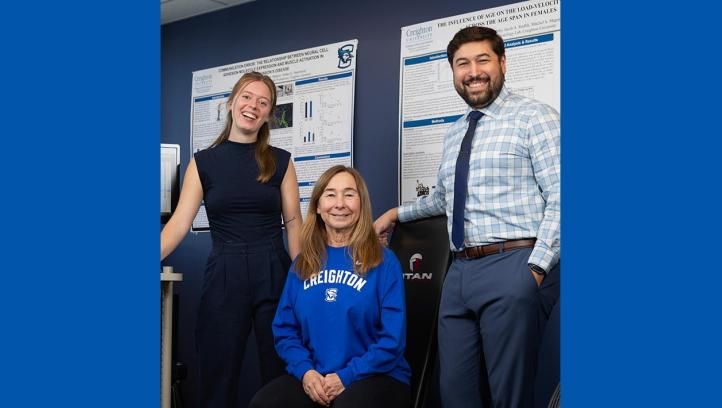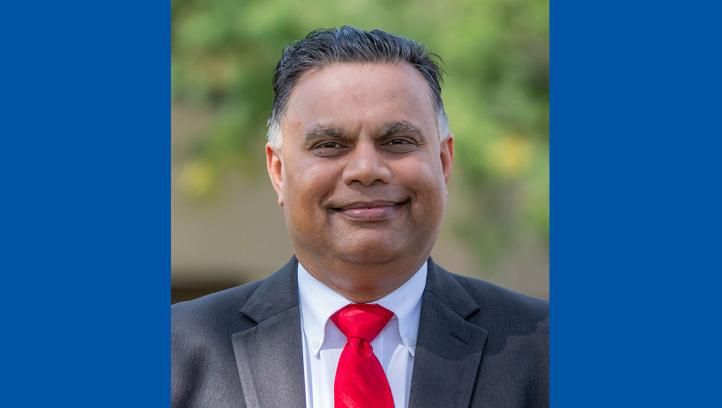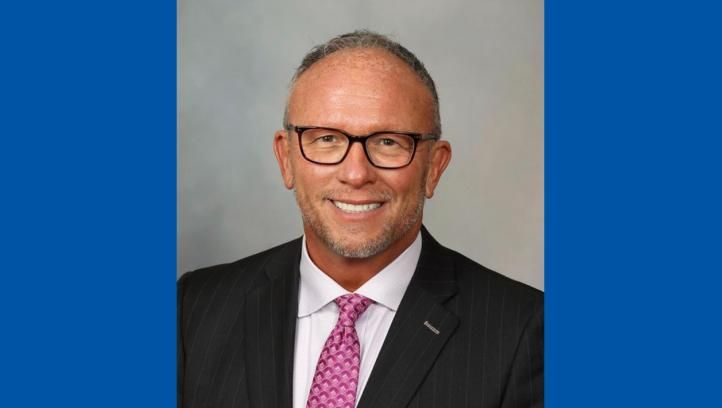
Building resilience in schoolchildren

Back in 2014, when Jan Powers, PhD, (pictured above) was a school counselor striving to build resilience among students, she encountered a concept called trauma-informed practice. It was a life-altering discovery that spurred her to earn a doctorate in counselor education and supervision while becoming a leader in the effort to impress upon counselors the importance of understanding the often-devastating impact of trauma on the lives of schoolchildren.
Today an assistant professor of education at Creighton, Powers addresses the problem of trauma through a tool she helped devise called ARCCH (pronounced Arch).
It all began when, struck by the potential of trauma-informed practice to benefit her students, Powers asked researchers at the University of Iowa to help guide research pioneering creation of a trauma-informed school, which was new to education in 2014.
So successful was that effort that other team members encouraged Powers to pursue her doctorate so that the concept could be spread more widely.
“The one thing that has stayed with me was the development of this resilience tool called ARCCH,” Powers says. “Initially it was published as part of a chapter describing our work in building trauma-informed schools. We continued to develop and research the model and just recently ARCCH was published as a conceptual model in an open-access journal.”
That exposure caused a research team in Florida to ask Powers to serve as an expert reviewer as they scale the ARCCH model to measure its impact on student bodies.
“I am very excited about that, because, as a school counselor and a counselor educator, this model is really helpful to me, and if I can get it into other people’s hands, what a cool way to affect the world for the better,” Powers says.
Another way she accomplished this was through the National Catholic Education Association, in which Powers presented a webinar to Catholic school counselors on how to use the ARCCH model with their students, staff and schools.
ARCCH stands for Attachment, Regulation, Competence, Culture and Health. Each of these components are well-researched topics, making it a complex model.
Upon implementation, however, Powers says, it becomes a simple conceptual tool for helping build strengths in self, students and school systems to address any areas that need support.
ARCCH is shaped by concepts developed by neuroscientist Dan Siegel, MD, who believes resilience reflects integration of neuron connections across separate regions of the brain. In addition, Michael Unger, PhD, principal investigator for the Resilience Research Centre at Dalhousie University in Halifax, Canada, recently published on the concept of multisystemic resilience, a concept demonstrated by ARCCH, which is a flexible model that can be used to build resilience across systems, as well as among individuals.
Individuals encountering ARCCH are asked a series of questions concerning where they feel they are strong, such as where and with whom they feel the safest attachments, and what’s working well. Next, ARCCH is used to identify where they need support. The success of that exploration will reflect the degree of trust the counselor has established with the student, Powers says, something she is confident about given that trust-building is a central skill of trained counselors.
Based on this student input and reflection with the counselor or other trusted adult, a short, simple but effective plan is drawn up to guide the student toward success.
The ARCCH model, Powers says, was developed from an earlier ARC model, which is a tool used in a therapeutic setting. Powers and her fellow researchers broadened each component to apply holistically to a school setting.
“We broadened the definitions of each of the components of attachment, regulation and competence, and then added health because of the research on the negative effects of trauma on health,” she says. “Next, we added culture because clearly in our society we have been facing the effects of racism. We need to continually examine our biases and how we treat people with cultures different from our own.”
Powers continues to research ARCCH in other areas, including a new project with the Creighton research team of Jean Hearn, EdD’16, associate professor of education, and Jiwon Kim, PhD, assistant professor of education. Having recently received approval from Creighton’s Institutional Review Board, the project will invite Catholic schools across the nation to use ARCCH to build resilience in their teachers and hopefully address the nationwide problem of teacher retention.




